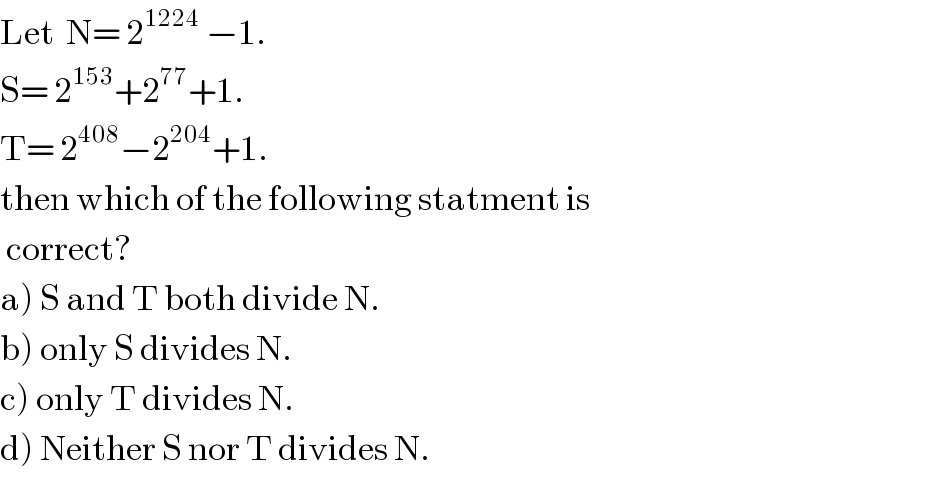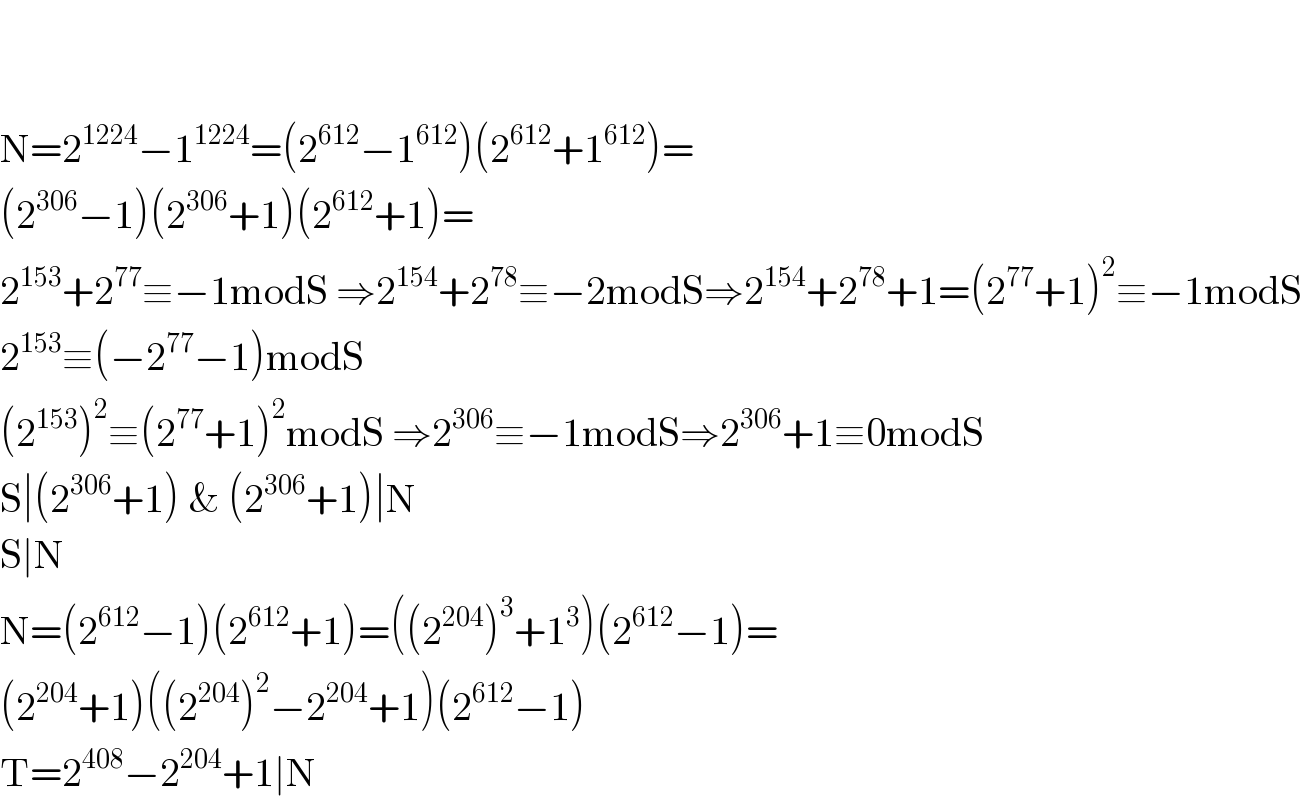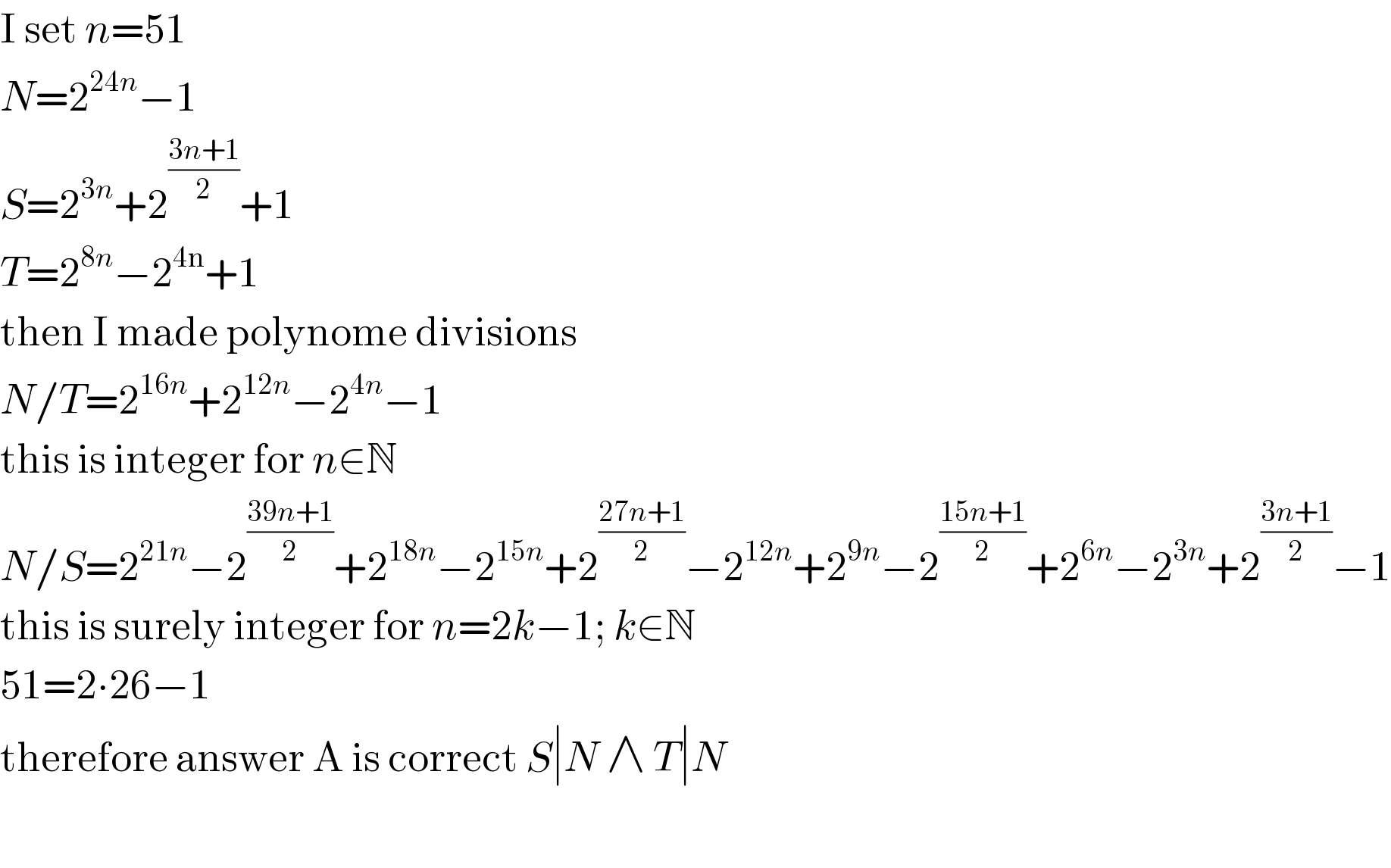
Question and Answers Forum
Question Number 30119 by rahul 19 last updated on 16/Feb/18

Commented by rahul 19 last updated on 16/Feb/18

Answered by Giannibo last updated on 16/Feb/18

Commented by rahul 19 last updated on 17/Feb/18

Commented by prof Abdo imad last updated on 19/Feb/18
![x≡y [n] means ∃k∈Z /x−y=kn or n divide x−y.](Q30243.png)
Answered by MJS last updated on 16/Feb/18

Commented by rahul 19 last updated on 17/Feb/18

Commented by MJS last updated on 17/Feb/18

Commented by Rasheed.Sindhi last updated on 17/Feb/18

Commented by rahul 19 last updated on 17/Feb/18

